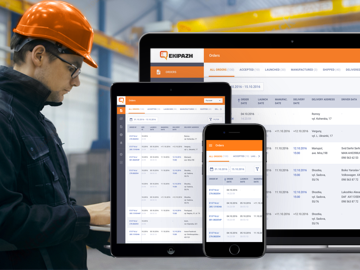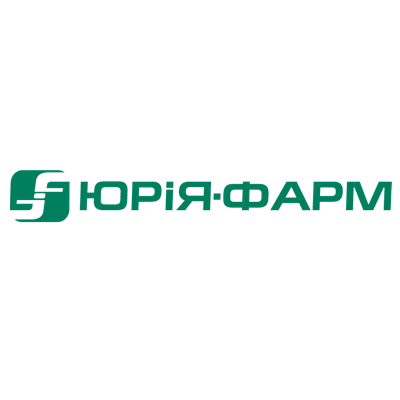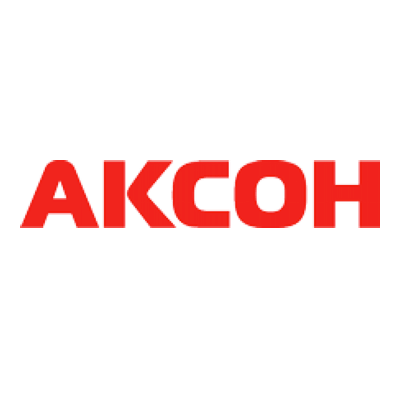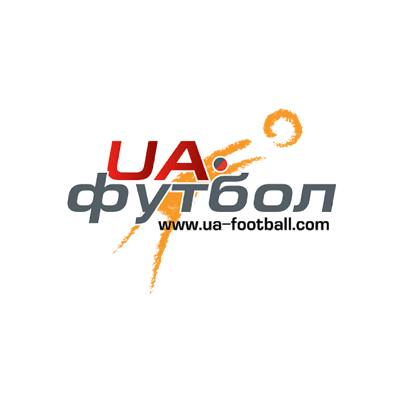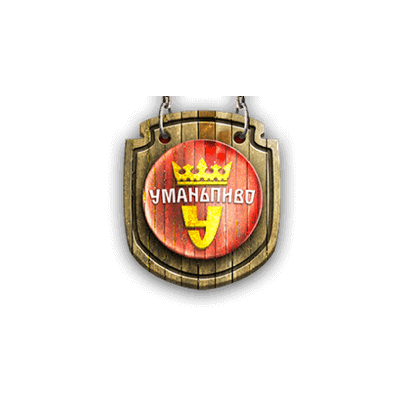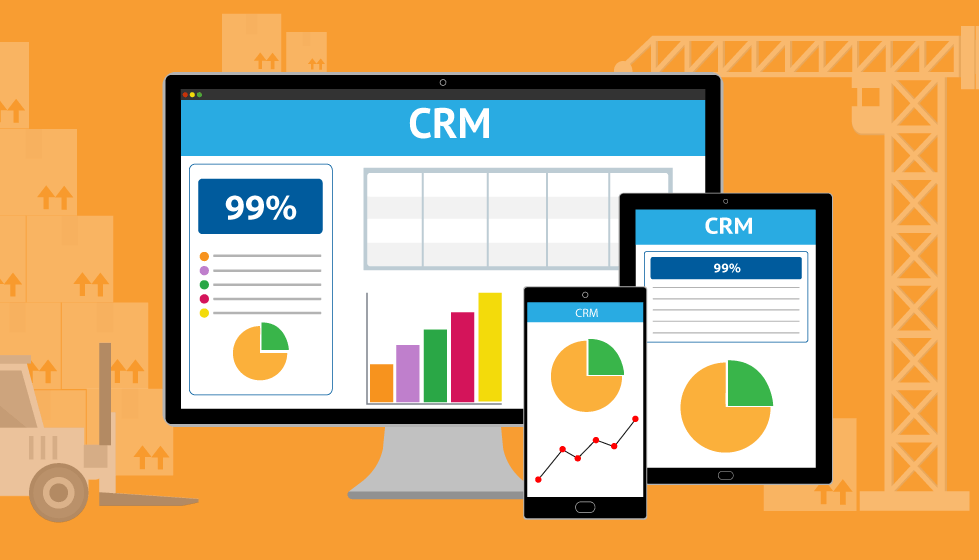
Information management software systems have long ceased to be an attribute of only a large-scale, high-cost business. Any business processes to a certain extent depend on information, due to which the risk, when making various decisions and developing new enterprise strategies, is reduced. Quality management of available information is the main function of managers in most existing companies. The main purpose of information management is to collect and obtain accurate, timely and necessary information, as well as its subsequent transfer to employees of the company. Woxapp is ready to offer you CRM, ERP and HRM system development in order to make the work of your company more automated, efficient and profitable.
Business process automation tools help to:
- make timely management decisions by obtaining up-to-date information;
- share information between company divisions faster;
- increase sales and profits by working with customers;
- automate routine tasks;
- reduce the impact of human factors.
Information programs are divided into several categories, each of which occupies a certain niche in the production (life) cycle, performing the necessary actions with the information support of the enterprise.
Along with traditional solutions of warehouse and accounting, the following solutions can be implemented:
- CRM is a tool for automating sales, marketing, working with potential and existing customers;
- HRM is a tool of personnel management (personnel decisions, performance evaluation, motivation, vacation schedules, training, the creation of a personnel reserve);
- ERP is a complex tool for automating the business processes of an entire enterprise, which has broad functions, including sales and personnel management, accounting, and other types of stocktaking.
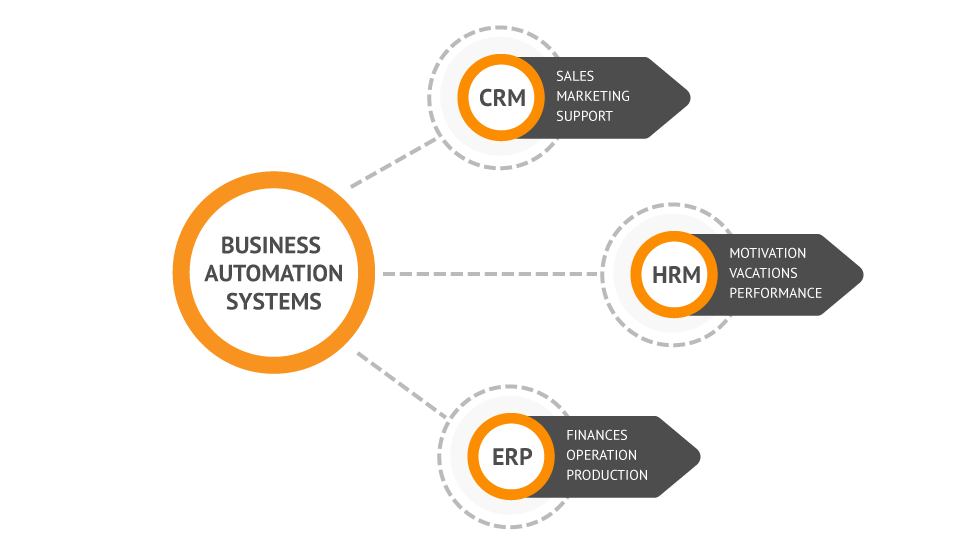
Today, there is a lot of ready-made standardized software products (including CRM, ERP, HRM), the purchase and implementation of which will be much cheaper than developing a complex program from scratch.
But if your business requires a special approach and you have not been able to find a suitable solution among ready-made or even the most convenient ones require a large number of modifications, it will be more profitable to order the creation of program from scratch. Taking this decision, it will be unreasonable to look for inexpensive solutions since the low cost of development may mean the lack of professionalism or even fraud.
Using programs based on standard modules can lead to unforeseen costs and time loss.
Especially if your business is at a growth stage. Trusting the implementation of CRM to our specialists, you will get:
- 100% effective solution, created specifically for your tasks and needs;
- no overpayment for unclaimed functionality;
- the shortest possible implementing time with the parallel elimination of errors and training of personnel;
- quality integration with external databases, KPI, commercial data, telephony, e-mail;
- creation of forms for data entry and reporting;
- competent installation of CRM on all devices of the corporate network, as well as mobile applications for smartphones and tablet PCs.
Types of Business CRM Solutions Development Will Be Reasonable For
The creation of the CRM system is necessary for medium and large businesses, where the provision of operational interaction between subventions and standardization of work is important. CRM program is also often used in small businesses in sales-oriented (eCommerce) companies.
The development of CRM systems for sales and marketing will be profitable for companies where the customer is personalized and information about him needs to be saved and analyzed in order to form the next personalized offer at the right moment. In a business where every effort is being made to increase the number of new customers and retain existing ones, where marketing and customer feedback are important, implementing a CRM system will be one of the most promising decisions.
The main users of the CRM bases are organizations that deal with:
production (solutions for the manufacturing industry);
provision of services ( tools for service industry);
wholesale and retail trade (retail CRM systems);
insurance, financing, banking, debt settlement spheres;
telecommunications;
transport and logistics transportation;
construction and repairs;
healthcare (solutions for pharmacies and hospital);
education (programs for schools, for universities, for training providers);
travel and tourism (the creation of IT novelties for travel agents, for hotels, restaurant).
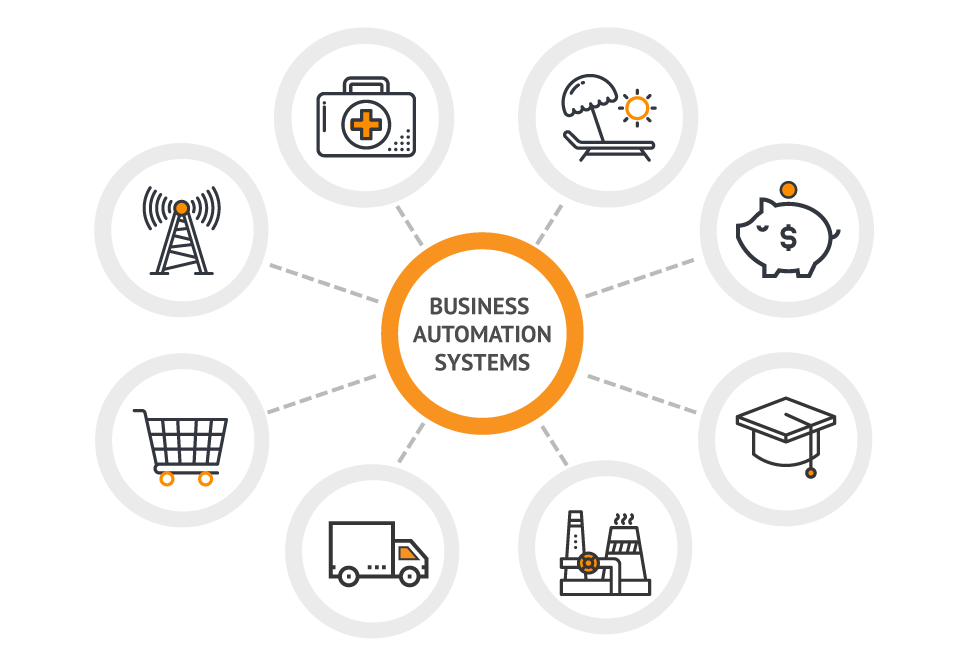
On the other hand, some industries do not need building a CRM system or commercial ERP programs in connection with the specifics of doing business. For example, a real retail store can earn customer loyalty only by the quality of service with personal contact.
Why is the Development of ERP Necessary ?
The complex program for business automation presupposes a process approach to building business models, powerful analytics for making managerial decisions and controlling all stages of work. Large businesses need such solutions. This is ideal for production.
ERP software developed and integrated into your business will provide you with the following advantages:
Synchronization of processes. When using the ERP system, it is possible to synchronize all the stages of activity that are interrelated and must be implemented in a certain order. This increases the effectiveness of the work in each of the departments, which together have an impact on the overall process.
Process control. With the help of the ERP, control over the main processes can be carried out in a hierarchy, from the simplest operational functions to the strategic regulation of the whole company;
Increasing the effectiveness of interaction. With the help of integrated business processes with ERP systems, the results of each department are evident, which allows improving the interaction between them;
Unification of reporting. When applying the ERP, all reports on financial and statistical information are formed according to uniform standards, which allows managers to see the overall picture of the departments and specific technological processes at the current time;
A wider range of management functions. ERP software systems can use the bases of corporate knowledge management by companies, which, as a result, increases the functionality of the manager;
Standardization of information programs. If the enterprise uses all modules of the ERP, the need for the availability and maintenance of individual information tools is not available;
Adaptation to the needs of the enterprise. ERP consists of several components that can work independently or in combination with the entire program. In this case, the set of tasks in a separate component will depend on the needs of the company. That is why the ERP software for small business can be used as effective as in the case of a large company;
Data protection. Users of the ERP can be grouped into separate groups of accesses. In this case, all operations performed by any of the users can be tracked and checked;
Interaction with the tools of a lower level. Using API-interface, ERP can be integrated with low-level programs, such as process equipment, production complexes, and machine tools;
Scaling. For organizations with subordinates located in other regions, the ERP provides an opportunity to obtain a centralized management tool and to scale the decisions made;
Control in adjacent directions. ERP consists of various components and can simultaneously monitor the status of orders, material security, financial flows and other related areas of work.
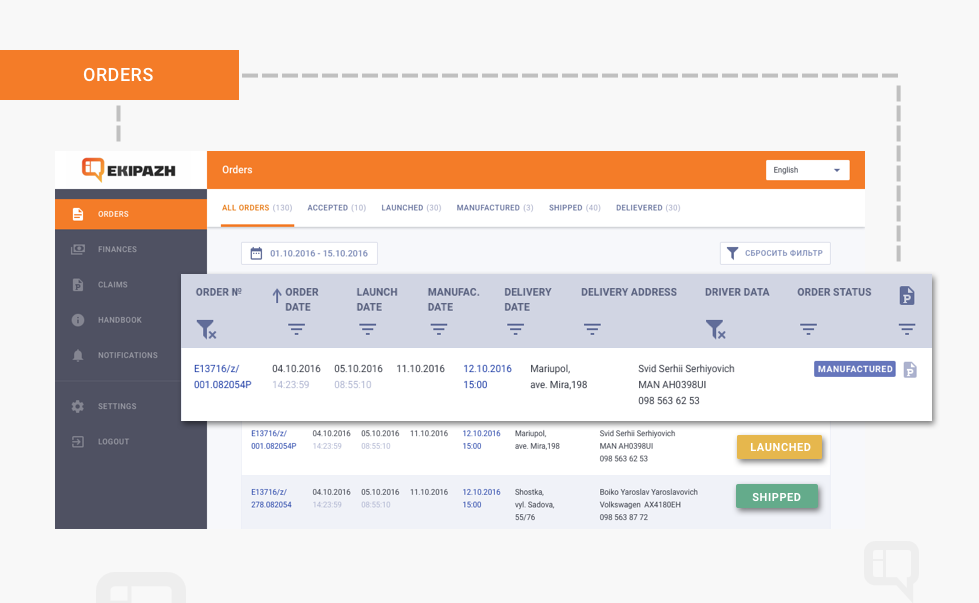
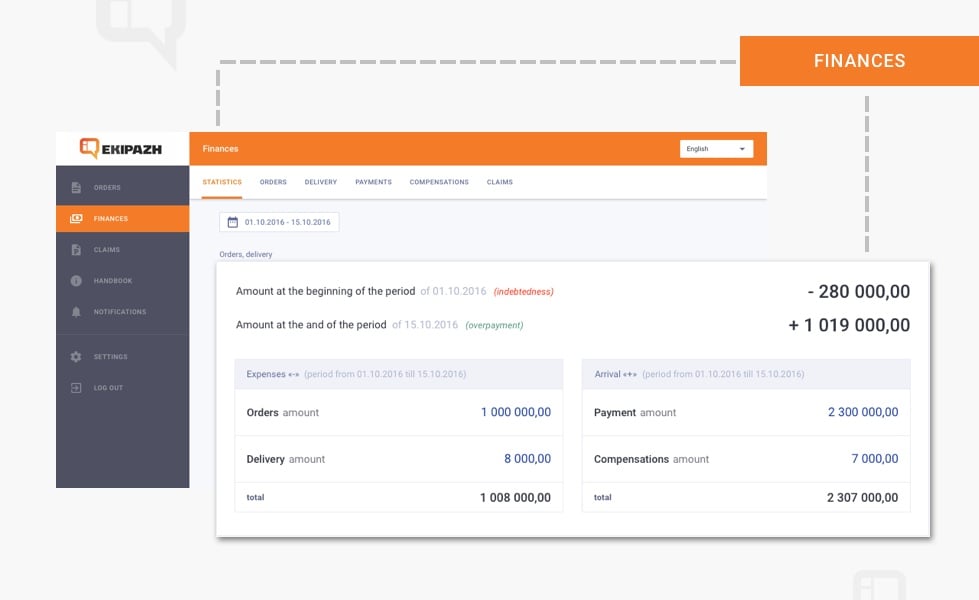
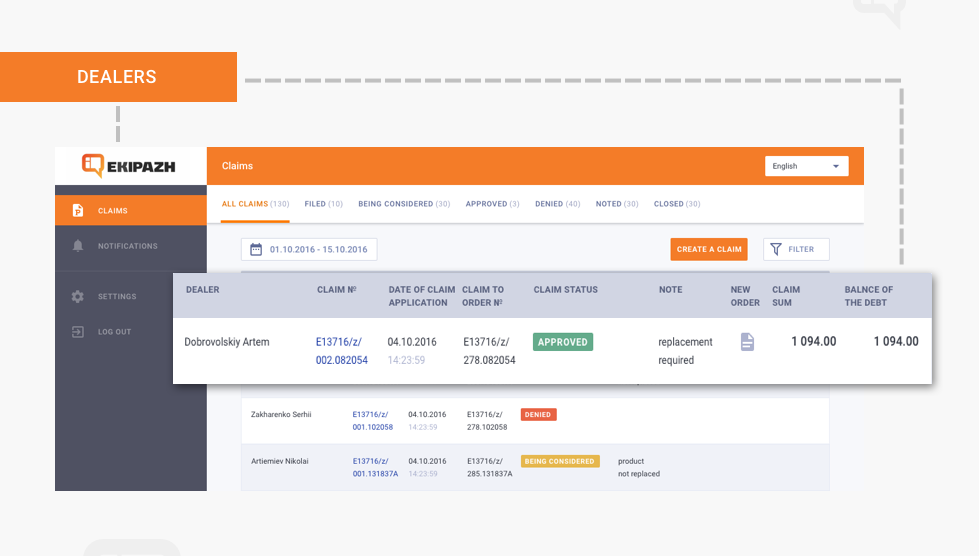
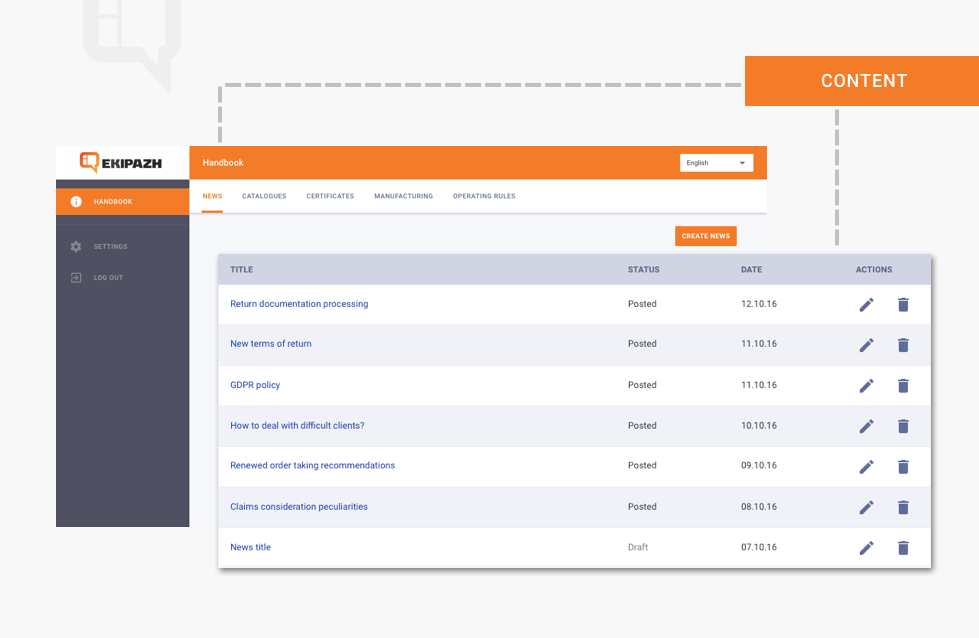
Сhoosing commercial ERP systems for your business, keep in mind that it includes HRM and CRM as well, so you do not need the creation and implementation of individual products for trade and personnel management. ERP also often contains warehouse and trade accounting, production management. Accounting and finance are usually integrated into the program.
Let’s Consider the Indicators of Efficiency
Here are some statistics that will prove that your business also needs custom ERP development and implementation of it into your production process. In conformity with the Panorama study:
81% of organizations have already realized this solution in practice or are at the final stage of the implementation;
Manufacturing, distribution, and education are the spheres where the benefits of this solution can be realized to the maximum. The share of industries is 35%, 29%, 23% accordingly.
The main reasons why companies make a decision in favor of this solution is improving business performance (17%), make the working process easier (14%) and facilitate reporting (14%);
70% of organizations prefer customized solutions;
93% of respondents improved some or all of their business processes;
70% of companies consider the results of ERP implementation successful;
30% of firms realized 51%-80% of projected benefits;
48% of respondents realized business benefits within six months of go-live.
CRM, ERP and HRM Components
The following architecture is used for the programs of this type in most cases.
The platform containing the basic functionality of the program.
Data management - databases, means of working with them.
Components and modules. They include software solutions necessary for the work of units, the formation of reports and the like.
API Tools. They are necessary for the organization of data exchange with the site of the company (feedback, sales in the online store) with other software used in the company (warehouse controlling, accounting).
Mobile applications. They are necessary if the employees are actively working remotely from the office (distributors, couriers).
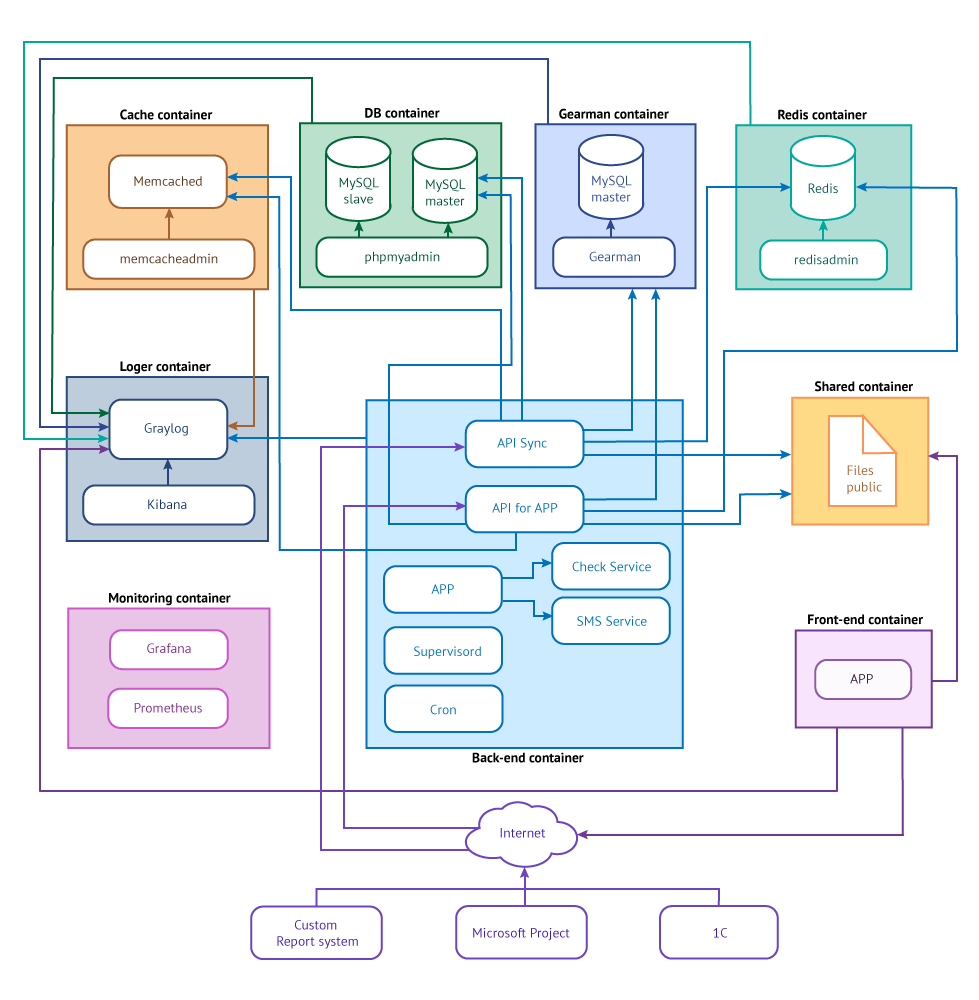
If you look at the architecture as a whole, it is important to highlight that interaction with accounting systems occurs through the API implemented on the server side. This in the future makes it possible to connect any accounting system to this huge system. It is also possible to increase functionality when synchronizing by expanding only the set of API methods.
The synchronization API and the API for clients are separated, as they are two sources of the load. When needed, they can be distributed to different physical servers without the need to change something in the architecture. After analyzing the architecture, it is clear that if a block is taken out separately, its links will not be broken and will not change.
The system has a queue server enabled for complex tasks. For example, if we need to place 40k orders or accept 10,000 simultaneous objects for processing, we will queue them in the background and perform synchronization without peak loads. The queue server not only allows us to perform operations asynchronously but also plays the role of a restraining buffer between the accounting systems and the main system.
In projects where there are many background operations, there is a logging system. This is very important because if the data during synchronization was not delivered to the cloud, we need to determine where it failed and do it as quickly as possible. Such a logging system allows us to do this.
How the Roles Are Distributed within the program
The creation of CRM, as well as any other business tools, requires special attention to safety and elaborate role assignment. It means that every participant of the process of developing CRM should have access only to the tools and data necessary for him. Depending on the role, the list of documents, reports, management tools in the user’s interface is changed.
There is the example of an approximate role assignment:
The Head of the enterprise. He has an access to viewing all the documents, reports, the task set for the employees.
The Head of the department. He can manage documents, reports, perform task setting and viewing of the information about the department activities which he is in charge of.
Ordinary performers. They have the possibility of creation, modification of the documents, data reporting as part of the official competence. There also should be an impossibility of introducing modifications into the tasks and documents of other employees (unless it is specified in the Technical Assignment). The employees should be able to receive the tasks from the executive management.
If your enterprise use the ERP, the number of roles increases due to the joint effort of different structural units of the company.
Interview, the collection of requirements, the study of the peculiarities of business.
Development of a business model for further automation.
Preparation of the Technical Assignment.
Creation and approval of the prototype.
Design drawing and its approval.
Coding.
Testing.
Implementation.
Maintenance.
Common Pitfalls You Should Avoid
When the head of business sets his own goals overlooking the functions which are essential for the work of the units, complications arise already at the stage of data collection and the setting of the task. For this reason, it is recommended to involve not only the managerial personnel but also the heads of the departments at this stage.
The opposite mistake is in attempt to cover everything at once, to specify the maximum of functions and possibilities. It complicates the process and makes it more expensive. As a result, part of the functions becomes unclaimed. The best possible choice is to move from the simple to the complex. First, basic functional features are created and tested, then additional possibilities are implemented in the case of necessity.
Development of ERP is even more complicated. For this reason, it makes sense to remember that it’s a module tool, and after creating the kernel and database, it’s possible to add and implement new modules, which means to transfer employees to a new program on a staged basis.
When developing interfaces of a new program of business automation, it makes sense to take into account what the employees are used to, which programs they are working with. It will simplify the transition, boost the training process, minimize the reluctance of employees to implement a new tool.
It’s also important to learn which software products are applied at the enterprise for other purposes:
Integration. Arranging of data exchange with the programs which will be used in the future.
Transfer of the remaining fragments. Automatic data transfer into a new program.
Synchronization with the existing programs.
Synchronization (data exchange) with the existing programs can be carried out:
Through existing API of the software product which has been already operating at the enterprise. It is necessary to understand in advance whether there is such a possibility and what peculiarities the API has.
By writing own API and setting the data exchange with the existing instruments. The specialists responsible for software maintenance are employed for this purpose.
Cost of Developing CRM, ERP, HRM
Depending on the functional features, the ways of developing of +CRM, ERP, HRM can be classified in the following way:
Basic functionality. It includes the platform and functions that are absolutely necessary for work.
Extended functionality. The list of reports will be extended, the integration with the website and other programs will be carried out, the functional features, the necessity of which has been found out during the process of using the basic version, will be developed.
Maximum possibilities. The software is complemented with a mobile version on the basis of iOS and Android, other possibilities are also realized. It can be the gamification of business processes, additional means of analytics, etc.
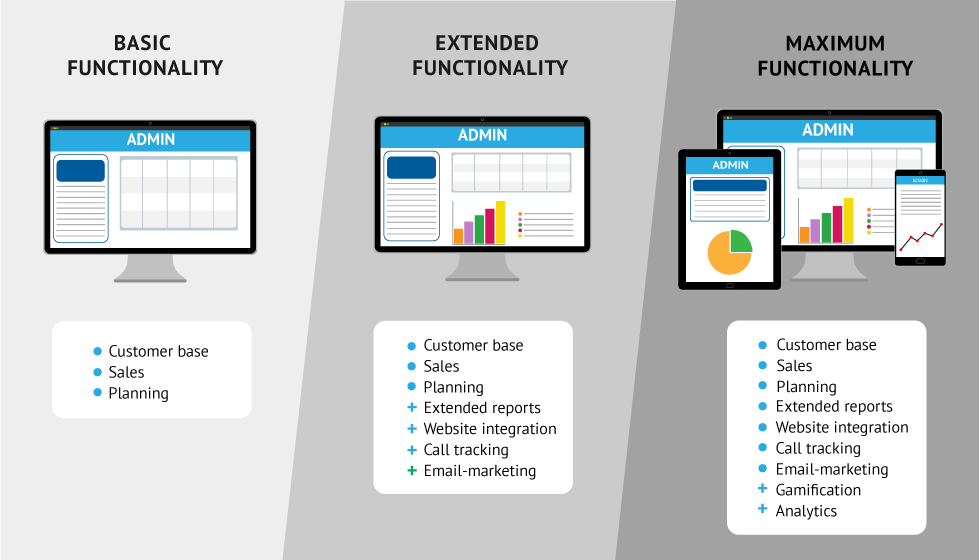
In order to launch the software product within the shortest possible time and make CRM, ERP, HRM cost-optimal, we recommend applying the MVP (Minimum Viable Product) method. According to it, it is necessary to start with the minimal necessary functionality and extend it later as and when necessary.
Consequently, you will receive the bespoke CRM system which will perfectly meet the goals and tasks of your business, which will be launched within a convenient time scale. And it will be always possible to build additional functional features in the future in case you need them.
We Can Boast of Flexible Approach to Work
Development of ERP, CRM, HRP is performed by using the SCRUM. The customer can control the development of the software in real time, view the results of each iteration, add, modify and eliminate the functional features if required. We have a flexible approach to the cooperation and are always ready to adapt to the project-related demands.
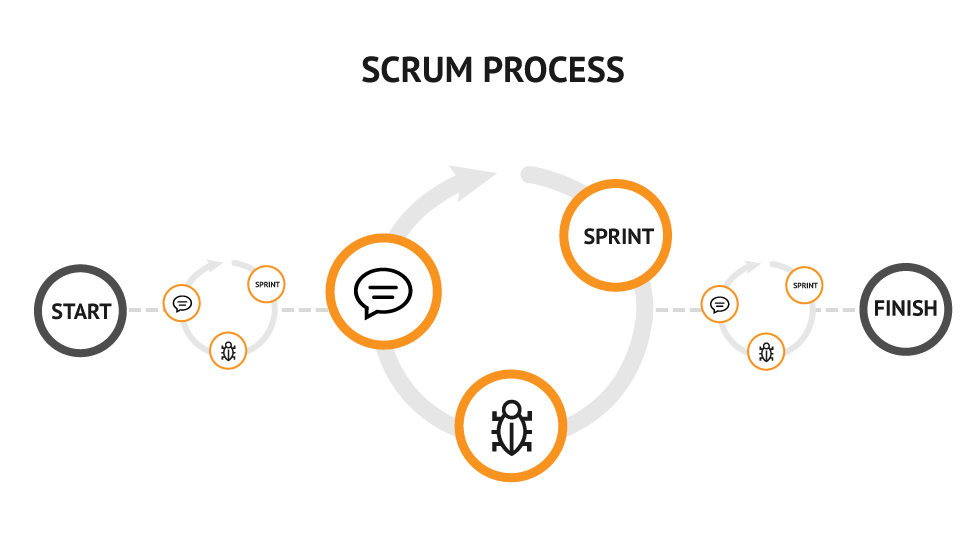
Let’s Make the Decision
Our vast experience in the development of software product allows us to save your time and help calculate the price of your project in advance. Take a look on one of the latest projects - custom CRM development for large scale enterprise Ekipazh in order to evaluate our skills and understand the development process from within.
Such detailed planning allows us to reasonably estimate financial resources already in the initial stages of cooperation. We brainstorm, think over, plan and discuss each stage of development, which gives us the opportunity to find out the number of working hours as accurate as possible. Our customers are always able to track the progress of development and find out how their money is being spent.


